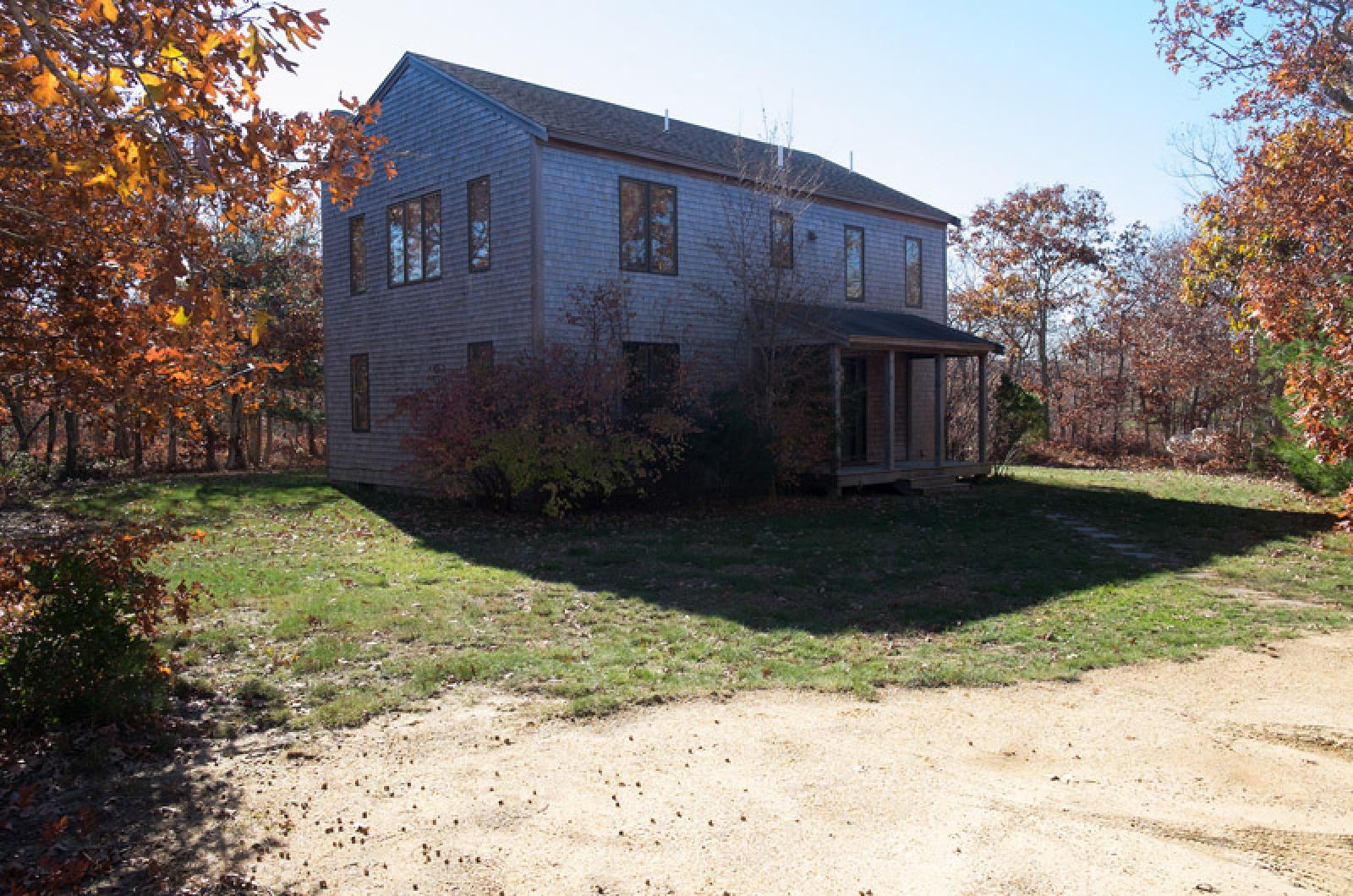Although a number of questions went unanswered, Edgartown selectmen this week authorized the town affordable housing trust to buy and resell a home on Metcalf Drive. It marks the first resale in Edgartown of a home originally designated as affordable housing in perpetuity.
The home at 45 Metcalf Drive recently became available when the owner left, for reasons that have not been fully explained. Spokesmen for the town affordable housing committee told the selectmen Monday that they want to buy the house using money from the town affordable housing trust fund, and resell it to a new owner who meets income guidelines for affordable home ownership.
“It’s our first opportunity to go through a procedure to make sure the house goes to another person [qualified for] affordable housing,” said Christina Brown, a member of the affordable housing committee.
The home was moved to its present location in 2003 as part of a collaboration involving the town and a private homeowner. At the time an Edgartown property owner planned to demolish the structure to make way for new construction. Housing advocates convinced him to donate the home and receive a tax deduction, and the structure was moved to one of four town-owned lots near the Vineyard Golf Club. The lots were donated by the golf club developer as part of the permitting process.
The current owner, Michael Lynch, qualified under affordable housing guidelines which required the buyer’s income to be less than 120 per cent of the area median income. The sale price was $205,000, according to assessors records.
A deed rider restricts the sale of the property to someone who qualifies under similar affordable housing guidelines.
On Monday, selectman Arthur Smadbeck questioned why the town needed to get involved in a real estate transaction.
“This house is owned by an individual, why isn’t he selling it?” Mr. Smadbeck asked.
“It’s unusual, and in the best of worlds, they sell the house directly,” Ms. Brown said. “There’s a matter of timing.”
The committee wants to resell the house for $336,000, and Mr. Smadbeck, who is a real estate professional, also asked how the committee came up with the selling price.
“The $336,000 we came up with based on what Mike bought the house at in 2003, using a standard projection figure of what it would have been by today’s standards,” said affordable housing committee assistant Lucy Morrison. According to the original deed, the price is calculated by adding simple interest of five per cent per year to the original sale price. Under that formula, the housing committee values the property at $328,000. The current assessed value of the home and property is $215,200.
The committee added $8,000 to the sale price cover costs associated with the sale, including taxes and utilities while the town owns the property, and the administrative cost of conducting an affordable housing lottery.
Mr. Smadbeck and selectman Margaret Serpa voted to authorize the trust fund expenditures. Chairman Michael Donaroma did not attend the meeting.
Under town bylaws, selectmen must approve any spending from the affordable housing trust account.
The affordable housing committee expects multiple applications. To be eligible, potential buyers must qualify as first-time home buyers, fit within income and asset guidelines, and be pre-approved for a mortgage.
The maximum qualified income is $73,420 for one person, and increases in increments to $113,270 for a five-person household.
The committee has also expanded the definition of a first-time home buyer to include displaced homemakers, single parents, people over the age of 55 who are selling their current home in order to purchase an affordable unit, or someone currently living in substandard housing, under certain guidelines.
All applicants who qualify will be entered into a lottery overseen by the Dukes County Regional Housing Authority. Local preference will be given to current residents of Edgartown, and those who work at an Edgartown business.
Also at Monday’s meeting, Cape Light Compact administrator Maggie Downey made a presentation to the board, outlining steps the organization is taking to help consumers improve energy efficiency and the role it plays in an effort to modernize the distribution of electricity.
Ms. Downey outlined how planners are studying increased remote data collection and automation in consumer households to improve the efficiency of the power grid.
She explained how home-based alternative energy sources, energy storage, and more efficient power substations might be integrated into the power grid in the future to reduce the likelihood of outages during peak periods, and reduce costs.
Mr. Smadbeck advised caution in the way the Cape Light Compact represents energy consumers on the Island.
“We all need to be skeptical, because when we’re given these new things it could cost the consumer more money in the end,” he said. “I’m very, very nervous abut putting this in the hands of the utilities. Be very careful what you do on our behalf.”




Comments
Comment policy »